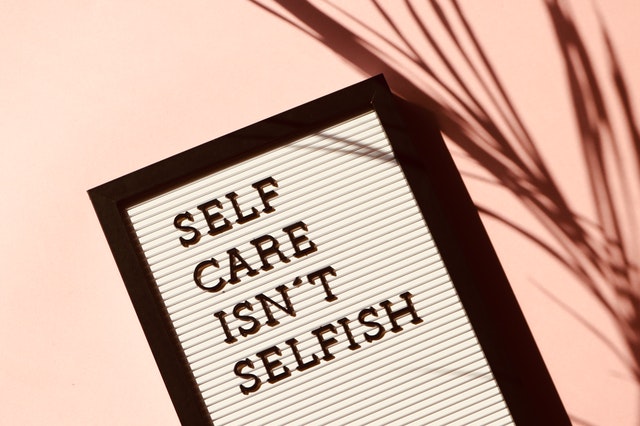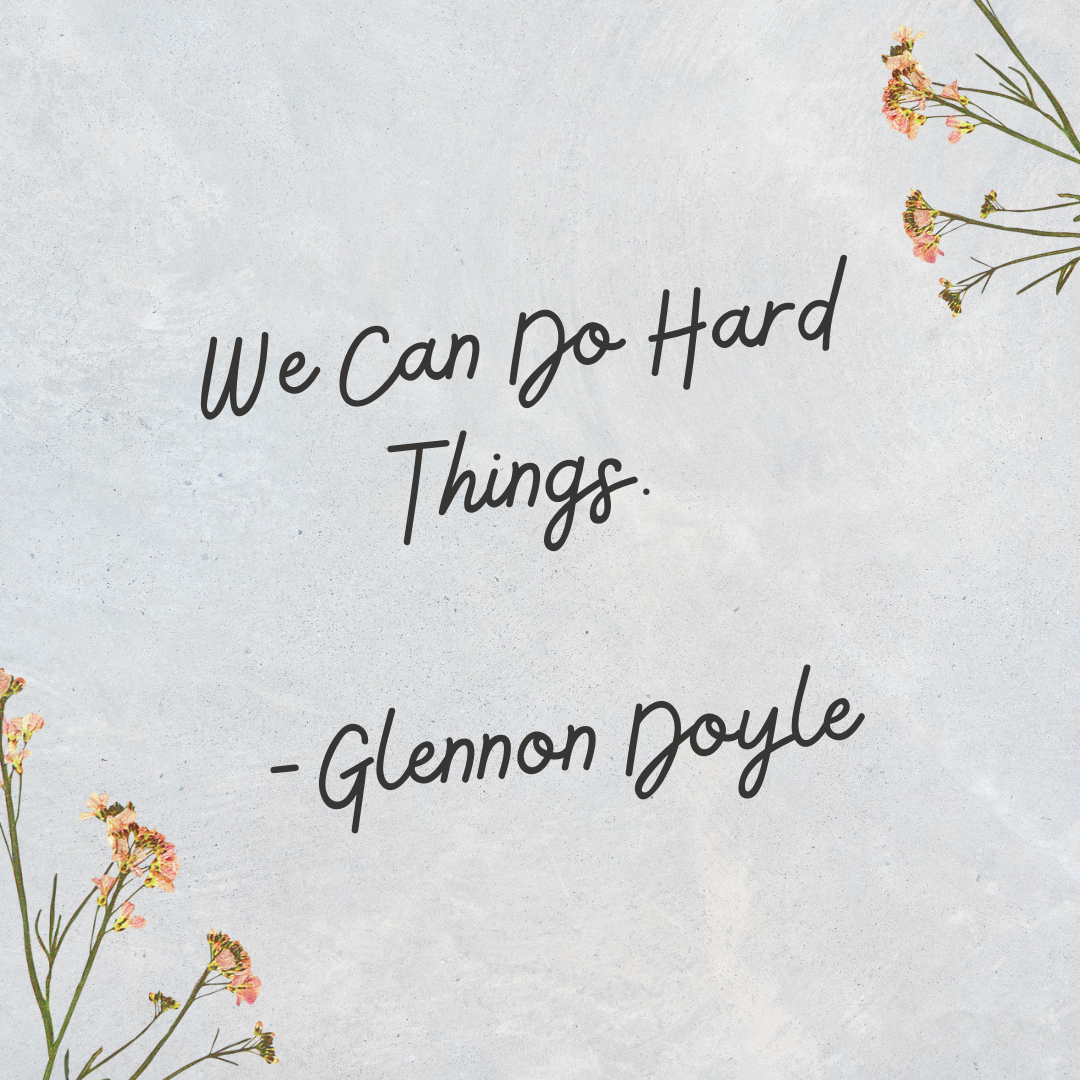The Other Side of Self-Care
May 31, 2022

“Instagram vs. Reality”
When you scroll through your social media feeds, you’re very likely to see a post or two about self-care these days. In fact, it’s safe to say that self-care and giving yourself permission to prioritize a self-care routine are becoming downright trendy. On TikTok, the hashtag #SelfCare houses over 21.5 billion videos, and on Instagram, the same hashtag houses 62.3 million posts. On Pinterest, a small amount of time scrolling will produce short videos or cutesy graphics telling viewers how to build the “perfect” morning routine or how you should participate in self-care. In the world of social media, self-care has graduated into an aesthetic comprised of clear skin serums, luxury makeup, cloud-like clothing items, organic vegetables, vacations in the Maldives, and lemon water. One is led to believe that if they follow all of these steps, they might feel more emotionally balanced AND have glowing skin. (No offense to vacations – we love those).
Of course, luxury items and fluffy slippers are fun for everyone (though not accessible to all). However, there is danger in believing that these material items are the sole building blocks of what it means to perform self-care. There is, indeed, another side to self-care, and it feel a little bit like tough love.

Photo Credit: Madison Inouye
Self-Care in Disguise
According to Joanne Klysen, MA, LPC, one of our licensed therapists here at Foundations, “Self-care isn’t always this pretty, fluffy thing that it’s made out to be by social media sources. Rather, self-care can actually come in many different forms, some of which may even feel difficult when you put them into practice.” Though self-care’s shadowy side may not feel easy, they may yield a higher quality fruit in the end, including the preservation of your mental health and sense of well-being. So a little patience and self-soothing is required.
Here are just a few examples of this radical self-care (some of Joanne’s favorites!):
Setting healthy boundaries: A boundary provides protection to a person’s personal or mental space. There are many types of boundaries, each of which is intended to establish the physical/emotional limits of appropriate behavior between people and help define where one person’s identity ends and the other begins (codependency is what can happen when those boundaries become muddled). Establishing and maintaining healthy boundaries are vital for protecting one’s mental health and keeping relationships with others healthy.
Healthy boundaries allow each person in a relationship (any type – family, friends, romantic partners, etc.) to honestly communicate their wants and needs, while also respecting the wants and needs of others. Healthy boundaries might look like: saying “no,” honoring and clearly communicating your needs, respecting the different values and belief systems of others, and not compromising yourself in unhealthy ways (such as just to appease someone else).
Unhealthy boundaries lead to dysfunctional relationships and can be detrimental to one’s mental health. Sometimes, unhealthy boundaries can also lead to abuse and safety concerns in relationships. Unhealthy boundaries might look like: not accepting “no” from others, being coercive or manipulative to get others to do something they don’t want to do, constant oversharing of information with others or in inappropriate situations, and compromising your values and beliefs to satisfy others.
Setting healthy boundaries may feel difficult at first, and it may even upset loved ones in the beginning. However, as a form of self-care, establishing boundaries is about being honest and protective of yourself – mind, body, and spirit. Having healthy boundaries can improve your self-esteem, boost your confidence, improve your sense of identity, and help you avoid burnout. If you think about it, being able to advocate for yourself and your boundaries is one big way to show yourself love and respect.
There are many great tips HERE about setting healthy boundaries in various situations and settings.

Unlearning negative coping skills: Everyone goes through times of high stress and other overwhelming emotions. We may not be able to control the external things that happen to us, but we can choose the way we respond! Coping skills are the tools we use to help us get through those tough times by minimizing the emotional distress we feel from tough emotions like grief, anger, or loneliness. Having an arsenal of healthy coping skills is critical for our mental health. When we build, maintain, and rely on healthy coping skills, we’re more likely to approach life’s many challenges from a more grounded foundation and confident headspace.
According to Talkspace, there are two types of coping skills: Problem-focused and Emotion-focused. Problem-focused coping strategies will help you tackle problems head-on, so as to eliminate the source of stress, even if it’s one step at a time. A few examples of problem-focused coping skills might be creating a calendar, establishing boundaries, or ending a situation that is creating stress (like a toxic relationship). As you move closer toward your goals and/or resolutions, instead of avoiding the problem, you will gradually eliminate lower your stress levels.
Emotion-focused coping strategies can help you deal with difficult emotions by soothing yourself, finding temporary healthy distraction, or helping you tolerate stress. This style of coping allows one to acknowledge their emotions head-on or find alternative methods for soothing overwhelming emotions. Sometimes, it can be helpful to handle our big emotions (like grief) in bite-sized pieces, rather than all in one moment. The “right” type of coping strategy will be dependent upon the situation and a person’s preferences. A combination of the two categories may be appropriate! What’s important is finding a healthy way to adapt when times are hard. You can find more examples of healthy coping strategies here.
It’s important to recognize that there are healthy and unhealthy coping strategies. When pain becomes overwhelming or people undergo traumatic events, they may find coping strategies that help eliminate pain temporarily but are ultimately unhealthy. Sometimes, these coping strategies can do more harm than good in regard to our physical and mental health. A few examples might be smoking, substance abuse, self-harm, disordered eating patterns, or avoidance patterns. It’s important to face the reality of our unhealthy coping skills so we can replace them with tools that are healthier for our body and mind. If you think you need help dealing with unhealthy coping strategies, trauma, or other mental health issues, you can find numerous helpful resources from NAMI here, so you can get the support you deserve.
Ending toxic relationships: “This is a more challenging one that not a lot of people think about,” notes Joanne. As a form of self-care care and an act of self-love, it is a great idea to mull over the close relationships in your life and how they make you feel. A healthy relationship should be comprised of mutual respect, open communication, support, and a degree of trust. In brief, your relationships with other should make you feel positive. An unhealthy or toxic relationship, on the other hand, will have more detrimental effects on your life and mental health than benefits. Signs you’re in an unhealthy relationship (regardless of type – friend, partner, family, professional, etc.) may include disrespectful actions, bullying, gaslighting, unhealthy power dynamics (like a person who controls another), and feelings of overall unhappiness. Keeping relationships in your life that diminish your overall sense of self-esteem or worthiness will end up draining your energy and harming your mental health.
Life is short. Cut ties with people who aren’t adding to your life in a positive way. While it may be a difficult action to take, you will feel better about your life and yourself in the long run. You deserve relationships that bring you joy and make you feel supported! If there are relationships in which you feel disrespected or your boundaries aren’t being recognized, it’s time to ask yourself whether those are people who deserve to be part of your life.
Note: If you or someone you care about is suffering from abuse, call the National Domestic Violence Hotline at 1-800-799-SAFE (7233) or text “START” to 88788.
Knowing when to ask for help and accepting help (including going to therapy): Sometimes, we need to admit that we can’t do it all, and we don’t have all the answers. It’s common for folks to be reluctant to ask for help, even when they really need it, because they worry about being a burden or carry unrealistic expectations for themselves to do it all. Folks may worry that asking for help makes them appear weak or otherwise insufficient as a person. Not asking for assistance or support when needed leads to overwhelm, chronic stress, and a slew of other stress-related health problems (like heart attacks and high blood pressure). Contrary to common belief, asking for help is both a brave and strong thing to do. It’s important to build and maintain a health support system with friends and family. Communicate your needs to others clearly, honestly, and respectfully. For specific issues, like those dealing with substance abuse or loss of a loved one, there may be support groups in your area to provide emotional support. Remember: your loved ones want to help you!
Most importantly, if you’re facing a difficult time or struggling with poor mental health, it’s important to reach out to a professional for help. Licensed therapists are highly trained to help you build self-esteem, heal trauma, boost emotional resiliency, and build an arsenal of healthy coping skills. Counseling also provides a safe space to process and work through emotions of all kinds. Together, with the help of a licensed therapist, you can create a treatment plan that works for your unique situation. SAMHSA’s (Substance Abuse and Mental Health Services Administration) website provides a services locator HERE. You can search by your particular location. When you get the help you need, you can build the life you deserve!
Taking a REAL break: Humans are not meant to hustle and be productive 24/7/365. Your body and mind need rest so you can thrive. That’s part of the reason prioritizing time for self-care is so important. Recall the old adage, “you cannot pour from an empty glass.” What are you doing to refill your glass? If the answer is nothing, then it’s an excellent time to take a step back and reconsider your self-care routine (or lack thereof), as well as the reason behind your drive to be busy, busy, busy all the time. Taking time to rest or invest time in your passions doesn’t make you lazy. It makes you human! When we give ourselves the gift of this restful time, we can return to our everyday activities refreshed and clear-headed.
Be Gentle
 Intentionally taking care of yourself is essential for your physical and mental health. Ensuring you’re getting enough water, good nutrition, sleep, and exercise are also critical forms of self-care; you need to care for your body AND mind. Build a self-care routine that’s healthy and fits well with your lifestyle! The time and energy that you invest in yourself matters. Finally, Joanne emphasizes the importance of “practicing gentle self-compassion” as a way to soothe and motivate ourselves, in lieu of negative self-talk. “It’s common for people to shaming internal dialogue instead of using words of encouragement for themselves. It never works,” says Joanne, “and if you’d never speak to a loved one that way, you shouldn’t be using that language on yourself either.” Be gentle on yourself, be mindful of your self-talk, and prioritize the self-care for an overall healthier you.
Intentionally taking care of yourself is essential for your physical and mental health. Ensuring you’re getting enough water, good nutrition, sleep, and exercise are also critical forms of self-care; you need to care for your body AND mind. Build a self-care routine that’s healthy and fits well with your lifestyle! The time and energy that you invest in yourself matters. Finally, Joanne emphasizes the importance of “practicing gentle self-compassion” as a way to soothe and motivate ourselves, in lieu of negative self-talk. “It’s common for people to shaming internal dialogue instead of using words of encouragement for themselves. It never works,” says Joanne, “and if you’d never speak to a loved one that way, you shouldn’t be using that language on yourself either.” Be gentle on yourself, be mindful of your self-talk, and prioritize the self-care for an overall healthier you.
Maggie F., Grants and Content Manager
Joanne Klysen, MA, LPC
The number for the National Suicide Hotline is 800-273-8255. You matter & you are enough.❤
Sources:
https://www.verywellhealth.com/setting-boundaries
https://www.webmd.com/mental-health/setting-boundaries8802
https://www.verywellmind.com/forty-healthy-coping-skills-4586742
https://www.talkspace.com/blog/coping-skills-methods/
https://www.nami.org/NAMI/media/NAMI-Media/Images/FactSheets/2021-Resource-Directory.pdf
